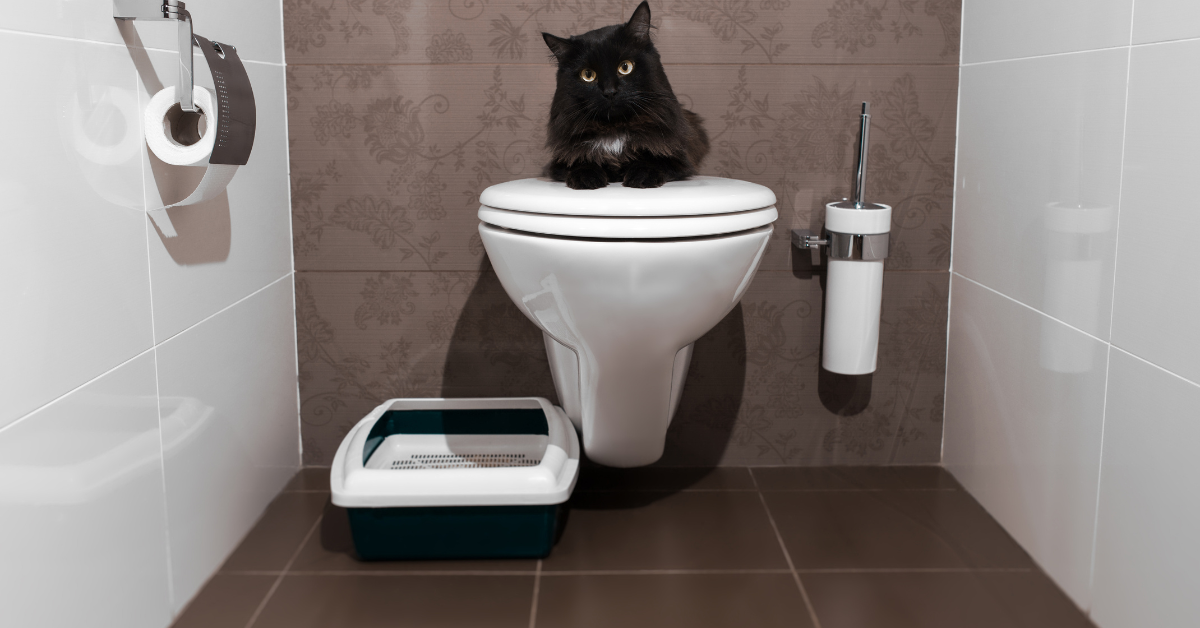We have encountered this article about Can You Flush Cat Poop Down The Toilet? directly below on the web and felt it made sense to talk about it with you over here.

Intro
As pet cat proprietors, it's necessary to bear in mind just how we dispose of our feline pals' waste. While it might seem convenient to flush pet cat poop down the commode, this method can have destructive effects for both the setting and human wellness.
Ecological Impact
Flushing feline poop introduces damaging pathogens and parasites into the water supply, posturing a substantial threat to water ecosystems. These impurities can adversely influence aquatic life and compromise water top quality.
Wellness Risks
In addition to environmental problems, flushing feline waste can likewise pose wellness risks to human beings. Feline feces might consist of Toxoplasma gondii, a bloodsucker that can cause toxoplasmosis-- a possibly serious illness, specifically for pregnant women and people with damaged immune systems.
Alternatives to Flushing
The good news is, there are safer and extra responsible methods to deal with feline poop. Take into consideration the complying with alternatives:
1. Scoop and Dispose in Trash
The most usual approach of taking care of cat poop is to scoop it into an eco-friendly bag and throw it in the garbage. Make sure to make use of a dedicated litter scoop and get rid of the waste without delay.
2. Use Biodegradable Litter
Opt for naturally degradable feline clutter made from products such as corn or wheat. These clutters are eco-friendly and can be securely disposed of in the garbage.
3. Bury in the Yard
If you have a backyard, take into consideration hiding feline waste in an assigned location away from veggie gardens and water resources. Make sure to dig deep sufficient to avoid contamination of groundwater.
4. Install a Pet Waste Disposal System
Purchase a family pet waste disposal system specifically designed for pet cat waste. These systems make use of enzymes to break down the waste, decreasing odor and environmental influence.
Verdict
Liable animal ownership expands beyond giving food and shelter-- it also entails appropriate waste management. By avoiding flushing pet cat poop down the bathroom and opting for alternative disposal approaches, we can reduce our environmental impact and safeguard human health.
Why Can’t I Flush Cat Poop?
It Spreads a Parasite
Cats are frequently infected with a parasite called toxoplasma gondii. The parasite causes an infection called toxoplasmosis. It is usually harmless to cats. The parasite only uses cat poop as a host for its eggs. Otherwise, the cat’s immune system usually keeps the infection at low enough levels to maintain its own health. But it does not stop the develop of eggs. These eggs are tiny and surprisingly tough. They may survive for a year before they begin to grow. But that’s the problem.
Our wastewater system is not designed to deal with toxoplasmosis eggs. Instead, most eggs will flush from your toilet into sewers and wastewater management plants. After the sewage is treated for many other harmful things in it, it is typically released into local rivers, lakes, or oceans. Here, the toxoplasmosis eggs can find new hosts, including starfish, crabs, otters, and many other wildlife. For many, this is a significant risk to their health. Toxoplasmosis can also end up infecting water sources that are important for agriculture, which means our deer, pigs, and sheep can get infected too.
Is There Risk to Humans?
There can be a risk to human life from flushing cat poop down the toilet. If you do so, the parasites from your cat’s poop can end up in shellfish, game animals, or livestock. If this meat is then served raw or undercooked, the people who eat it can get sick.
In fact, according to the CDC, 40 million people in the United States are infected with toxoplasma gondii. They get it from exposure to infected seafood, or from some kind of cat poop contamination, like drinking from a stream that is contaminated or touching anything that has come into contact with cat poop. That includes just cleaning a cat litter box.
Most people who get infected with these parasites will not develop any symptoms. However, for pregnant women or for those with compromised immune systems, the parasite can cause severe health problems.
How to Handle Cat Poop
The best way to handle cat poop is actually to clean the box more often. The eggs that the parasite sheds will not become active until one to five days after the cat poops. That means that if you clean daily, you’re much less likely to come into direct contact with infectious eggs.
That said, always dispose of cat poop in the garbage and not down the toilet. Wash your hands before and after you clean the litter box, and bring the bag of poop right outside to your garbage bins.
https://trenchlesssolutionsusa.com/why-cant-i-flush-cat-poop/

I stumbled upon that blog post on How to Dispose of Cat Poop and Litter Without Plastic Bags when surfing around the internet. In case you enjoyed our blog entry if you please remember to pass it around. I am grateful for your time. Don't forget to check up our blog back soon.
Visit Site